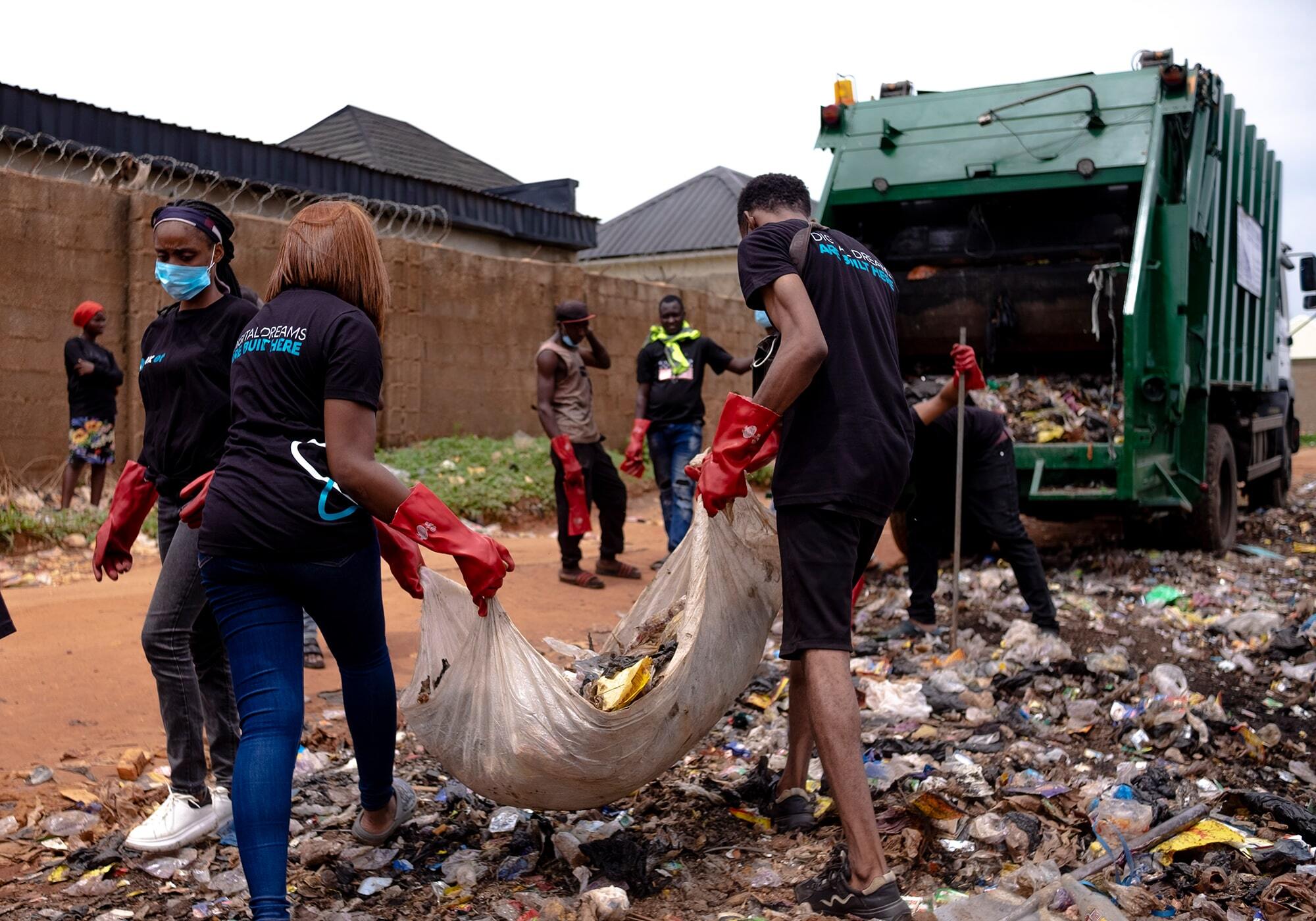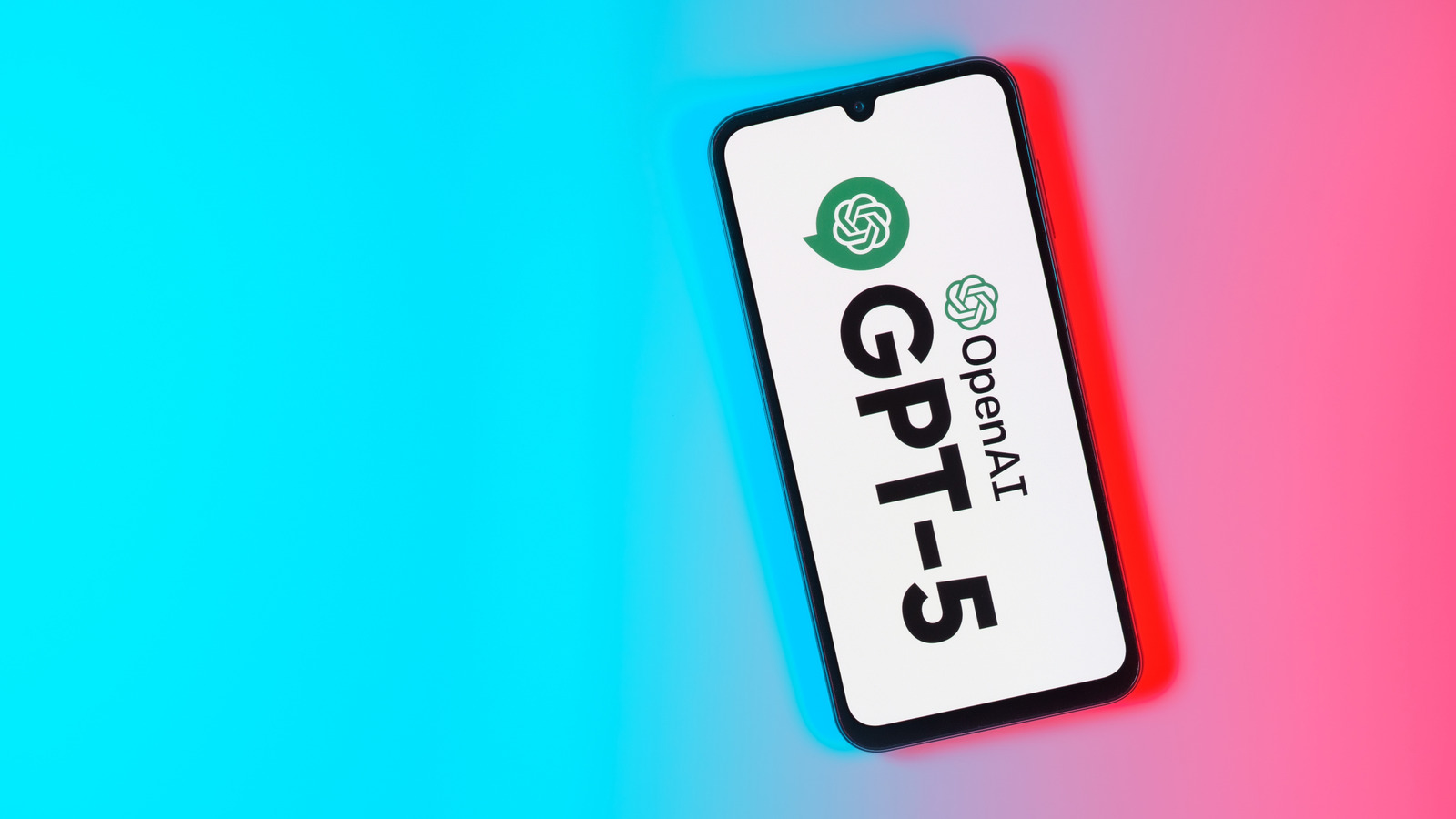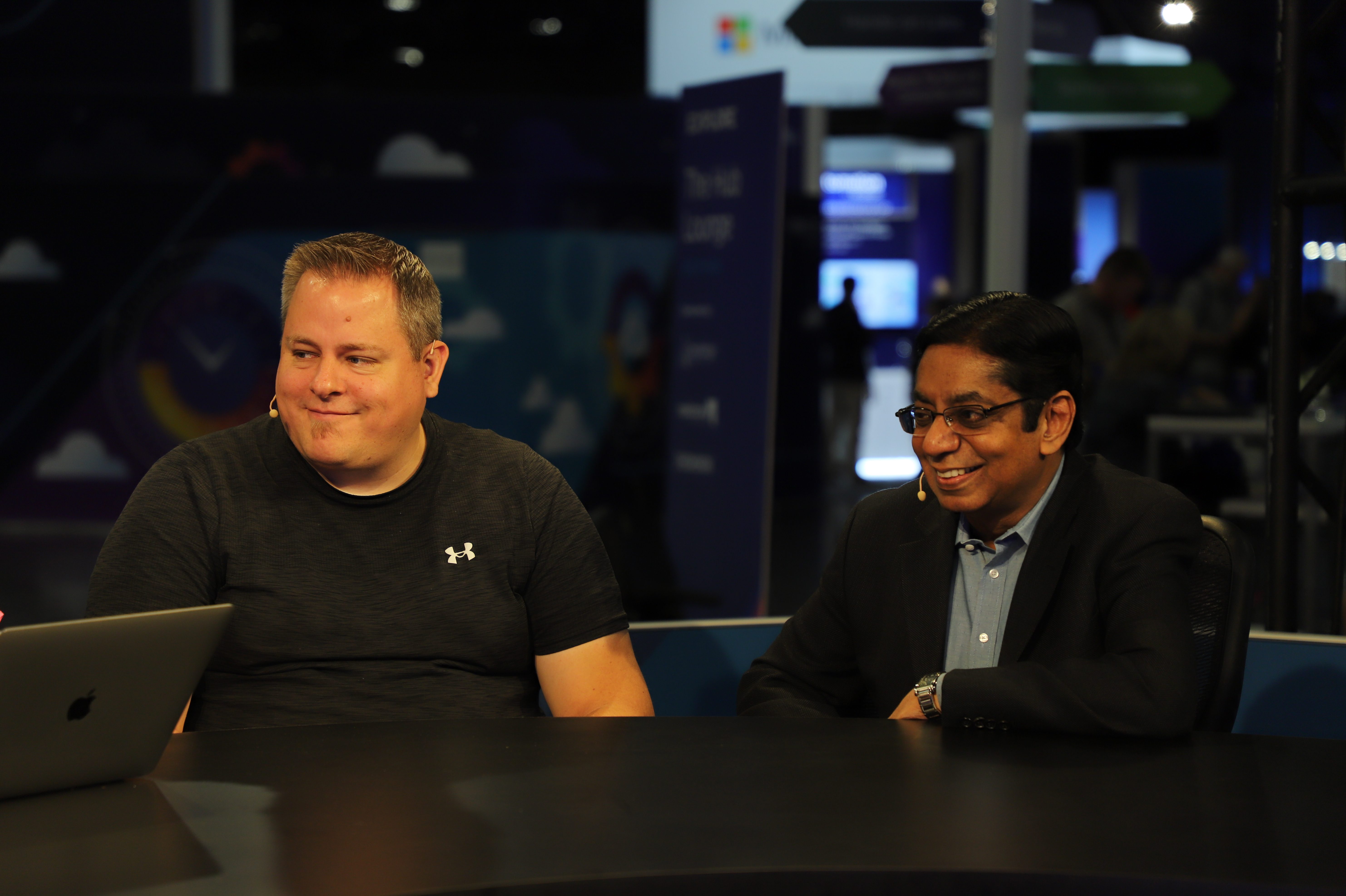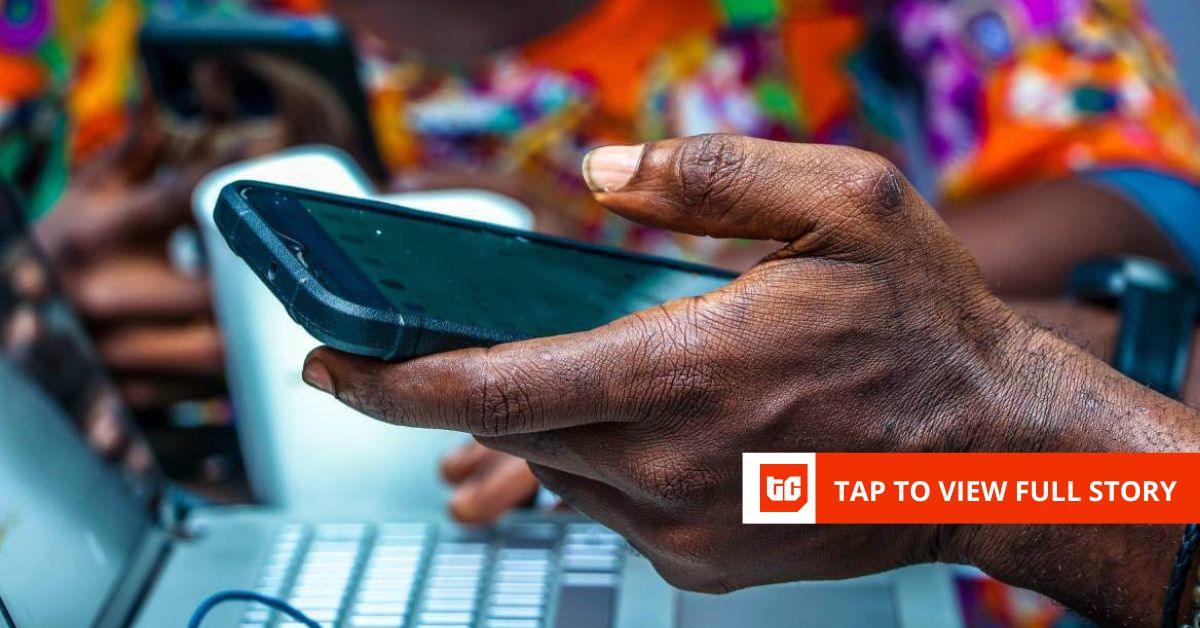Over 2.5 million tonnes of plastic waste are generated in Nigeria every year, yet most of it ends up in streets, waterways, and landfills. At the same time, thousands of young Nigerians remain underemployed, despite having the potential to thrive in tech and creative industries. These two realities may seem unrelated, but for Feexet, they’re part of the same story.
Feexet is a Nigerian social enterprise using design, technology, and community organising to tackle everyday challenges that often go overlooked. Whether it’s waste pollution or lack of access to digital education, the team believes that with the right tools, individuals and communities can take the lead in solving their challenges.
Over time, that mission has taken shape through projects that blend action with accountability. Among them, two have stood out. One tackles the challenge of urban waste and environmental neglect. The other invests in young people through free, practical tech education.
CleanSweep: From street corners to a city-wide movement
The CleanSweep Project is one of Feexet’s most visible efforts. On the surface, it looks like a neighbourhood clean-up drive. But spend a few minutes speaking with the team or attending one of the clean-ups, and you’ll realise it’s much more than that.
At its core, CleanSweep is about community-led environmental accountability. People report polluted areas. Gutters choked with waste. Illegal dumping sites. Places no one wants to claim. Then, Feexet mobilises. Volunteers show up. Tools are handed out. Plastics are sorted, bagged, and weighed. And slowly, things change.
To date, CleanSweep has cleared over 2,000 kg of waste across several communities in Abuja and beyond. And that’s just the beginning.
As more reports started coming in, the team realised they needed a better way to manage and scale the work. So they built the CleanSweep App, a tool that lets people report polluted areas, sign up as volunteers, track clean-up events, and even earn rewards.
“We wanted to create something that doesn’t just organise clean-ups, but actually builds a culture of ownership around public spaces,” says Christopher Balogun, one of Feexet’s co-founders. “The app helps us coordinate better, but it’s also about recognising people who show up again and again. So we created a volunteer leaderboard and a small reward system. It works.”
The app recently went live on the Google Play Store, and the team encourages anyone who wants to help or just see what’s happening nearby to download it.
Techquity: Training the next generation of tech talent
While CleanSweep tackles sustainability on the ground, Feexet’s Techquity programme takes a different approach, focusing on practical learning experiences for young people across digital fields.
Launched in 2023, Techquity began as an experiment. Could a grassroots design and coding bootcamp help close the access gap for young Nigerians who wanted to break into tech? The answer, it turns out, was yes.
The first cohort, Techquity 1.0, trained over 120 participants, focusing on UI/UX design, web development, and digital communication. Several alumni have gone on to secure full-time roles, while others now freelance or intern with Feexet, building on the momentum they gained.
Now, Techquity 2.0 is in full swing. With more than 200 participants enrolled from across Nigeria, sessions are held three times a week, combining live instruction, peer collaboration, and mentorship.
It’s not just about skills. It’s about confidence. Community.
And, perhaps more importantly, it’s about decentralising access to tech opportunities. It ensures that innovation isn’t limited to specific cities or networks but reaches every eager learner with a smartphone and drive.
A different kind of enterprise
Feexet also describes itself as a “digital service agency,” but that barely scratches the surface. Yes, they’ve designed over 150 websites, launched several mobile and web apps, and run digital campaigns for clients in different sectors. But the twist is in the model. They reinvest their earnings into community impact projects like CleanSweep and Techquity.
“We’re still figuring it out,” Christopher adds. “There’s no perfect roadmap for this. But we know we want to keep doing work that matters. And keep showing that small, intentional teams can still do big things.”
They may not claim to have all the answers. But if you’re looking for proof that technology, community, and accountability can mix and lead to tangible change, Feexet is a good place to start watching.










